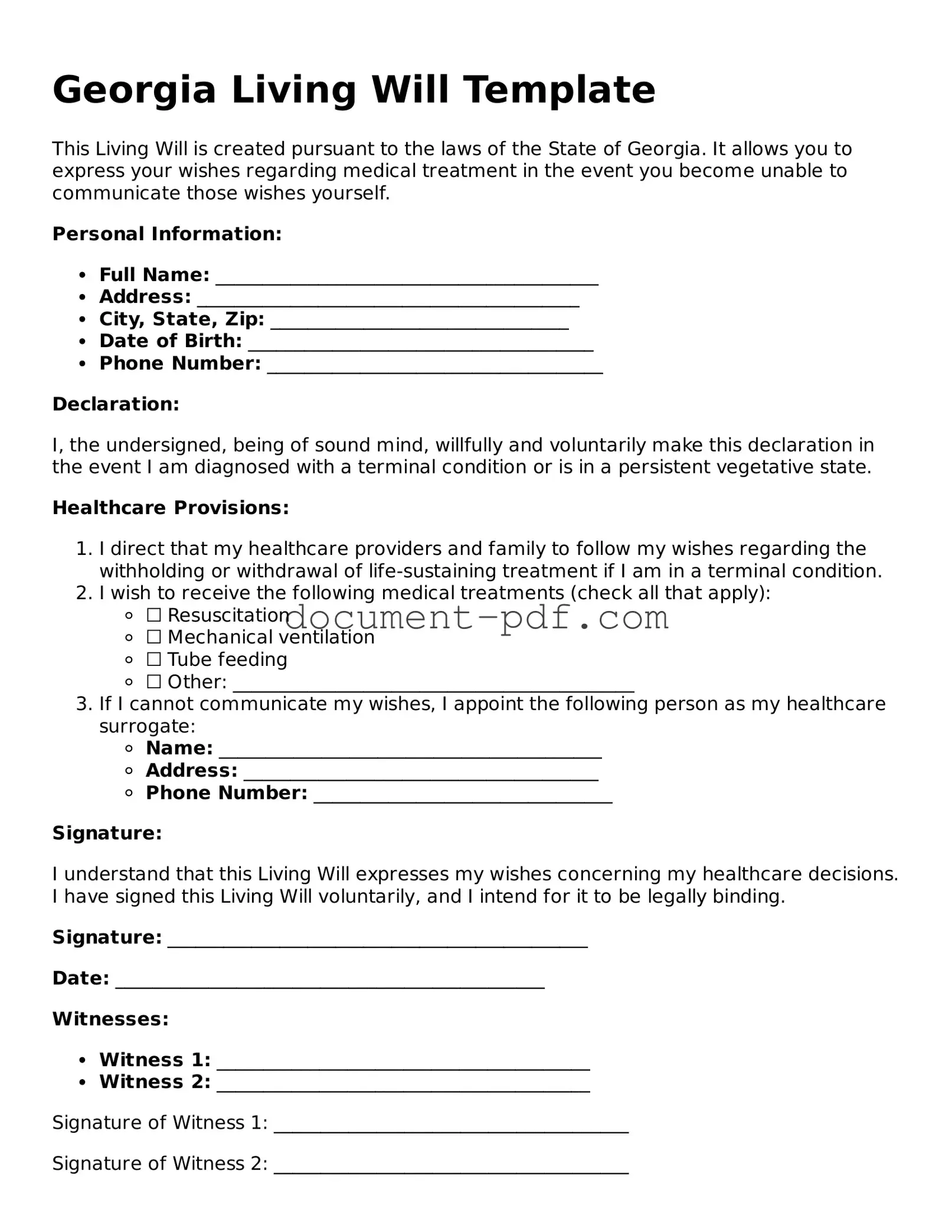Attorney-Verified Georgia Living Will Template
A Georgia Living Will form is a legal document that allows individuals to outline their preferences for medical treatment in case they become unable to communicate their wishes. This form ensures that your healthcare decisions are respected and followed according to your values and desires. To take control of your future healthcare choices, consider filling out the form by clicking the button below.
Access Living Will Editor Here

Attorney-Verified Georgia Living Will Template
Access Living Will Editor Here
Finish the form without slowing down
Edit your Living Will online and download the finished file.
Access Living Will Editor Here
or
Click for PDF Form
